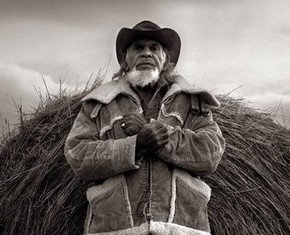The views expressed in our content reflect individual perspectives and do not represent the authoritative views of the Baha'i Faith.
Apostates: people who explicitly renounce their religion or beliefs.
Infidels: people who do not believe in a particular religion.
Heretics: people who have beliefs or theories strongly at variance with established beliefs or customs.
Do any of these definitions fit you?
Yes? Me, too. In fact, by these definitions, I’ve been all three–an apostate, an infidel and a heretic.
At thirteen, I explicitly renounced—apostatized–the religion I was born into, the Lutheran Church. By doing that I became, by definition, an infidel—because for a long time I didn’t believe in any religion. Then I discovered the Baha’i Faith and voluntarily decided to adopt it as my own–which for some fundamentalists is a heretical belief, subject to imprisonment and death.

We’ve all heard these three antiquated old words—apostate, infidel and heretic—a lot lately. They tend to come up often in the public pronouncements of groups like Boko Haram or the so-called Islamic State; they find their way into the slogans and the curses of many different fundamentalist religious agendas; and they have even re-entered the general dialogue as a result.
So in this short series of articles, let’s take a look at those words and the concepts behind them. Let’s explore what they used to mean, and what they mean today. Most importantly, let’s examine their increasingly common use against others—including the escalation into violence those words sometimes provoke–and see what the Baha’i principles have to say about that trend.
First, the Baha’i teachings, with their strong emphasis on the oneness of humanity, do not separate human beings into any of those archaic and simplistic categories:
A fundamental teaching of Baha’u’llah is the oneness of the world of humanity. Addressing mankind, He says: “Ye are all leaves of one tree and the fruits of one branch.” By this it is meant that the world of humanity is like a tree, the nations or peoples are the different limbs or branches of that tree and the individual human creatures are as the fruits and blossoms thereof. In this way His Holiness Baha’u’llah expressed the oneness of humankind whereas in all religious teachings of the past, the human world has been represented as divided into two parts, one known as the people of the Book of God or the pure tree and the other the people of infidelity and error or the evil tree. The former were considered as belonging to the faithful and the others to the hosts of the irreligious and infidel; one part of humanity the recipients of divine mercy and the other the object of the wrath of their Creator. His Holiness Baha’u’llah removed this by proclaiming the oneness of the world of humanity and this principle is specialized in His teachings for He has submerged all mankind in the sea of divine generosity. – Abdu’l-Baha, The Promulgation of Universal Peace, p. 454.
This revolutionary approach to belief has begun to change the world.
Rather than dividing people into two groups—the good and the bad, the faithful and the sinful, the heavenly and the satanic—the Baha’i approach centers on their essential oneness. Rather than separating and reviling “the other”—people from different religious or ethnic or racial or national groups—Baha’is see no others, only fellow human beings. Rather than breaking people into the traditional categories of the blessed and the cursed, the elect and the preterite, the saved and the damned, the faithful and the infidel, Baha’is believe in the unity and harmony of the entire human race:
From the beginning the followers of all religions have believed in two seas — one salt and one fresh; in two trees — the tree of good and the tree of evil. For this men have called one another heretics. Misinterpreting the divine commands, men have acquired prejudices and on these prejudices they have waged religious wars and caused bloodshed. Behold what is happening to-day! Men are killing their brothers, believing this to be the cause of salvation, believing that such work is approved by God, believing that those whom they kill will be sent to hell.
Baha’u’llah speaks to humanity in a different tone, declaring humanity to be like the leaves of a single branch, the branches of a single trunk. – Abdu’l-Baha, Divine Philosophy, p. 100.
















Comments
Sign in or create an account
Continue with Googleor